Supporting New Parents Protects Children

Tin Min Tway arrives late to the Savings Group meeting, her round belly swaying out in front of her. It is pay out day. The officer of the savings group has set aside her money for her. Tin Min Tway is a member of a Village Savings and Loan Association coached by The Charis Project’s Family Enterprise Program.
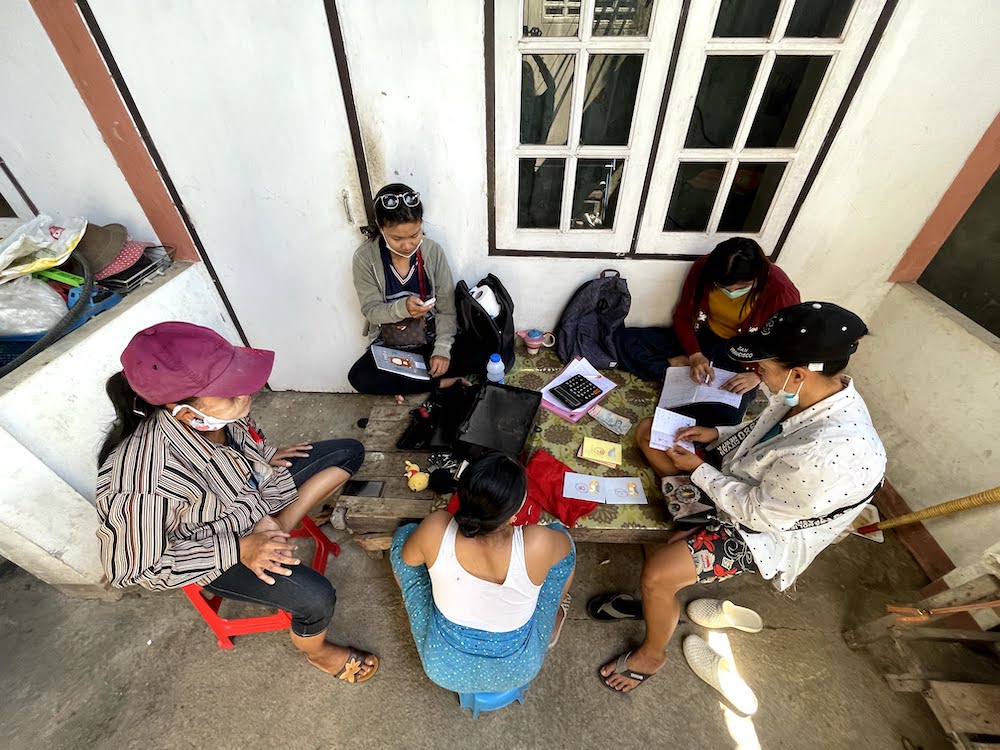
She has been adding money to the savings group every two weeks for 10 months now, about 150baht ($4.80USD) per meeting. Today, on pay out day, she gets her savings back, plus any profit made from service fees paid when group members take out loans during the savings cycle. She saved 3300baht, and her profit was 594baht for a total pay out of 3,894baht ($125USD).
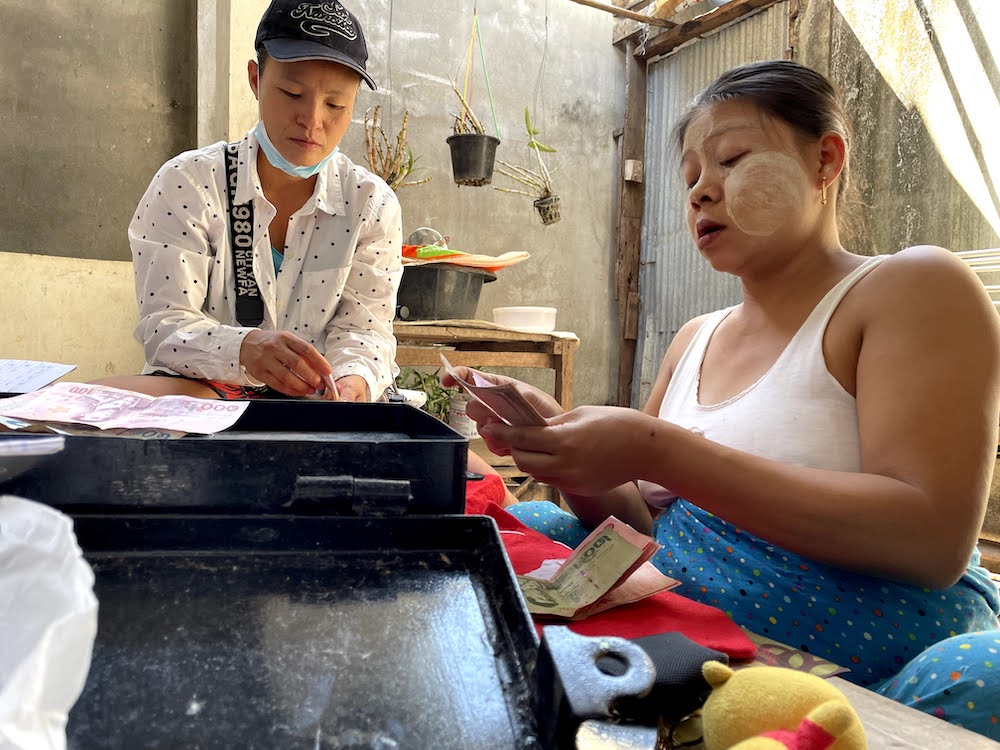
When asked how many people are in her family she answers, “Four and a half. I have two children already.”
She pats her belly. “This money will pay for medical care and delivery costs when my baby is born. Anything left over will help us get through until I can work again.”
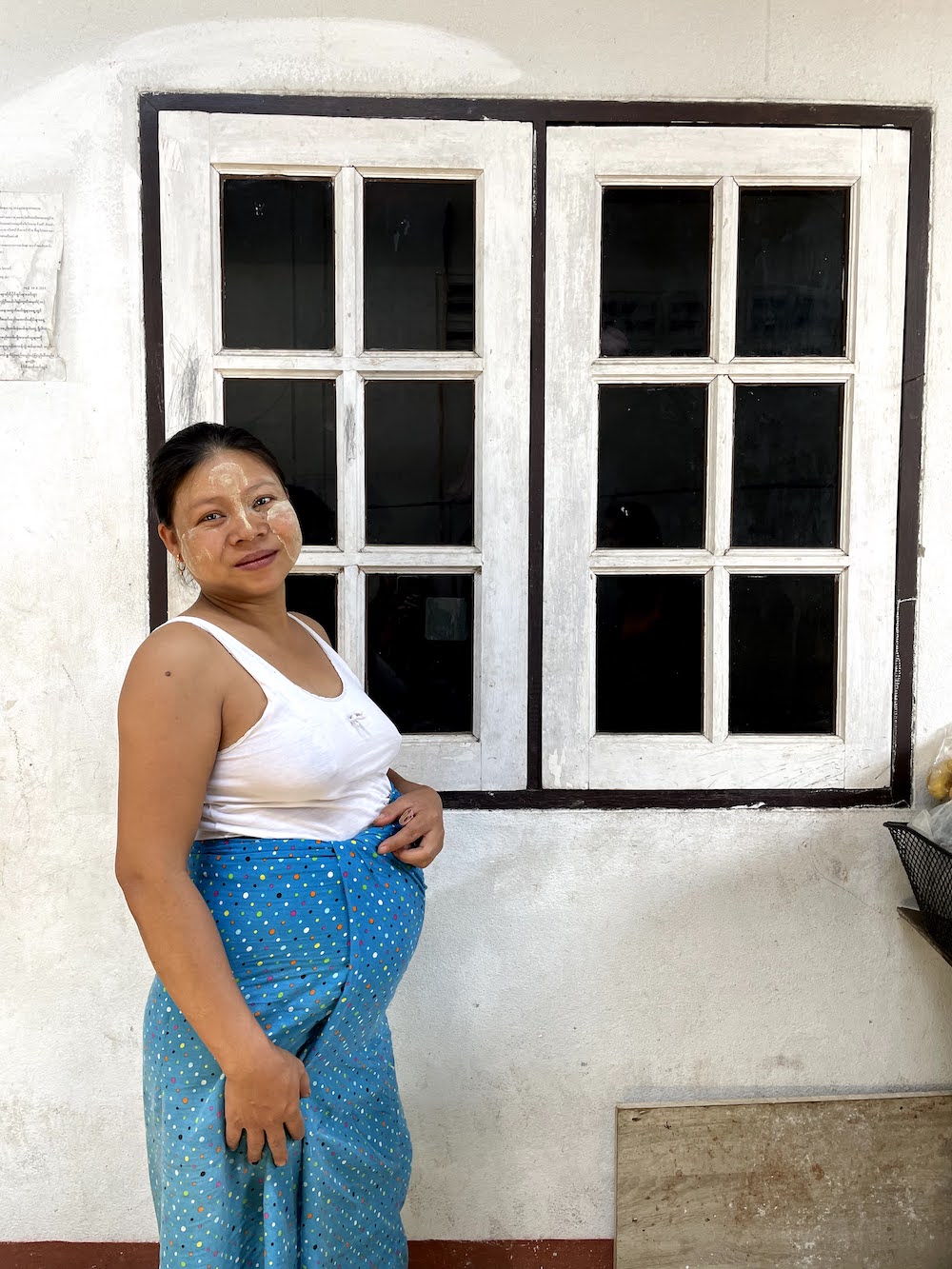
Thanks to the secure savings structures that she has access to through the Family Enterprise program, Tin Min Tway is in a better position than most migrant women here who are 7 months pregnant.
One of the hardest things about having a new baby for a migrant family is the financial strain due to lost work. Migrant families are often barely making ends meet as it is. A migrant woman usually doesn’t get maternity leave, or paid time off. A woman who gives birth loses her income until she is able to return to work.
For this reason, many women wean the baby as quickly as possible, usually on to sweetened soy milk because it’s cheaper than formula and they don’t know the difference, so that they can go back to earning money as soon as they can. It is not good for the woman, or her baby. The woman goes back to work before her body is fully recovered from childbirth. Her baby is often malnourished and neglected.
Early weaning disrupts the natural bonding process that occurs through the breastfeeding relationship. Breastfeeding biology is key in creating strong, healthy attachments and helps to protect children from abuse and abandonment. A bonded parent naturally promotes the developmental stages a baby goes through, even if they don’t understand them, simply because they act out of that naturally formed attachment bond.

To help solve this problem, our Family Rescue Program provides food to a breastfeeding woman for 6 months after birth. It allows a mother to relax into doing what’s needed to care for her child, providing breastmilk, and being present for the crucial early days of attachment and bonding. Your support gives families the window they need to welcome their new members and nurture them well. The combination of food, and weekly visits that encourage, strengthen, and educate parents, helps take the strain off of a family that is welcoming a new child.
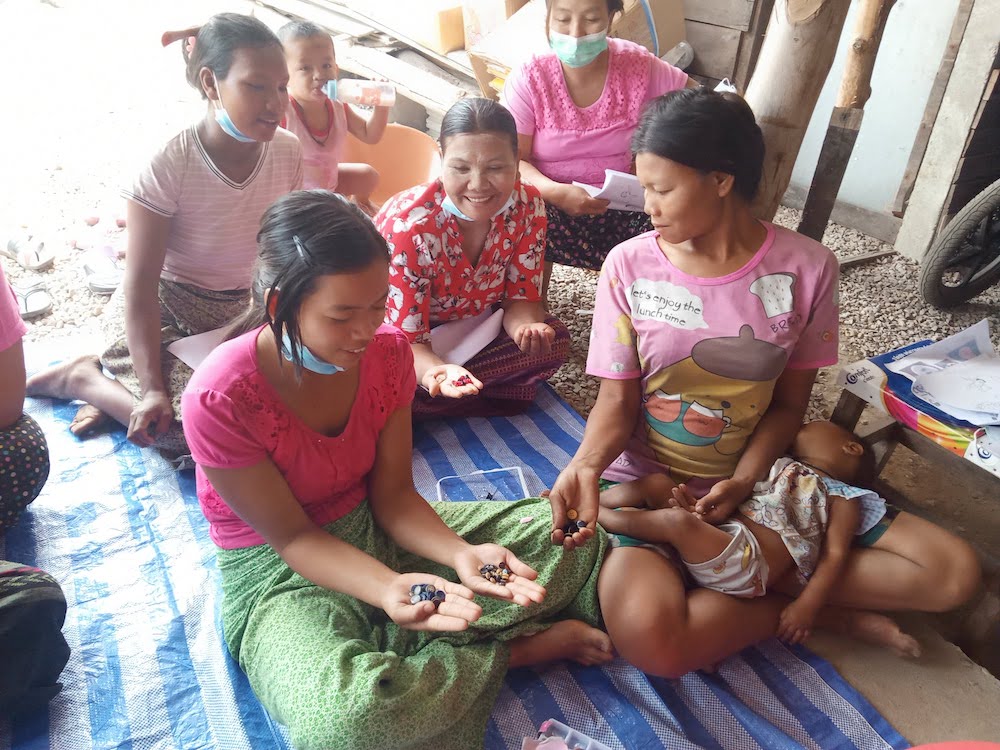
The Family Education Program gives parents knowledge that helps them to give their children a strong, healthy start. Our pregnancy classes include education on nutrition, childbirth, postpartum care, and breastfeeding. We also teach about healthy attachment and bonding through our Early Childhood Development classes. These equip parents to know how important it is that they are the ones to meet their child’s needs during the early days, and how to do that well. They begin to understand how important it is to a child’s wellbeing to have consistency in the grown ups they are bonded with.
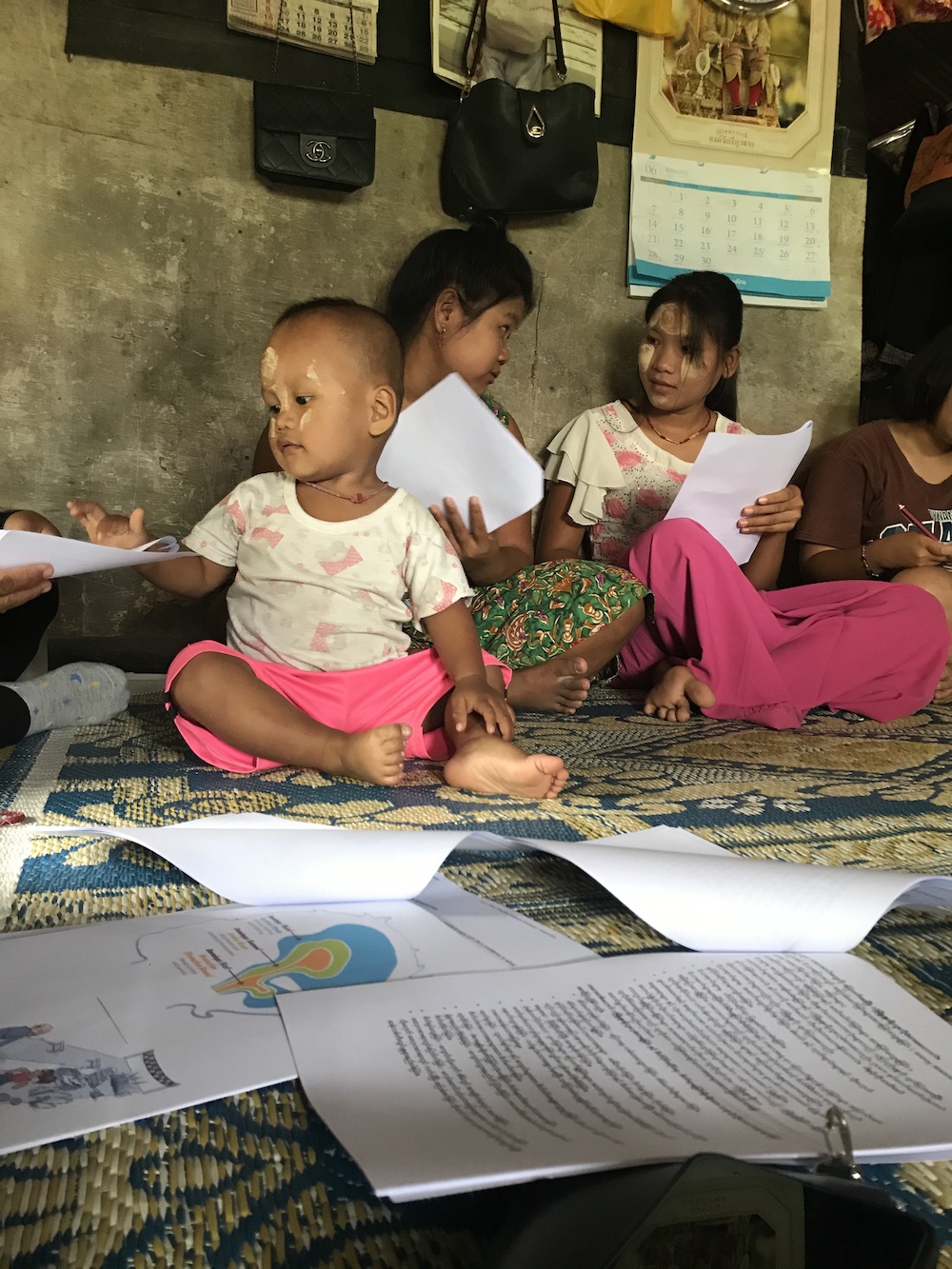
In one village where we taught several classes the village elder told us,
“Before you started coming to our village, most of the babies born here were skinny, and cried all the time. The babies born since you started caring for these women are so different, they are fat, they don’t cry as much, their mothers seem happier taking care of them and they know what to do when they are sick or fussy because you visit and help them learn.”
Thank you for strengthening families and supporting new parents in all aspects where they may be struggling. Your protection gives babies a strong healthy start.
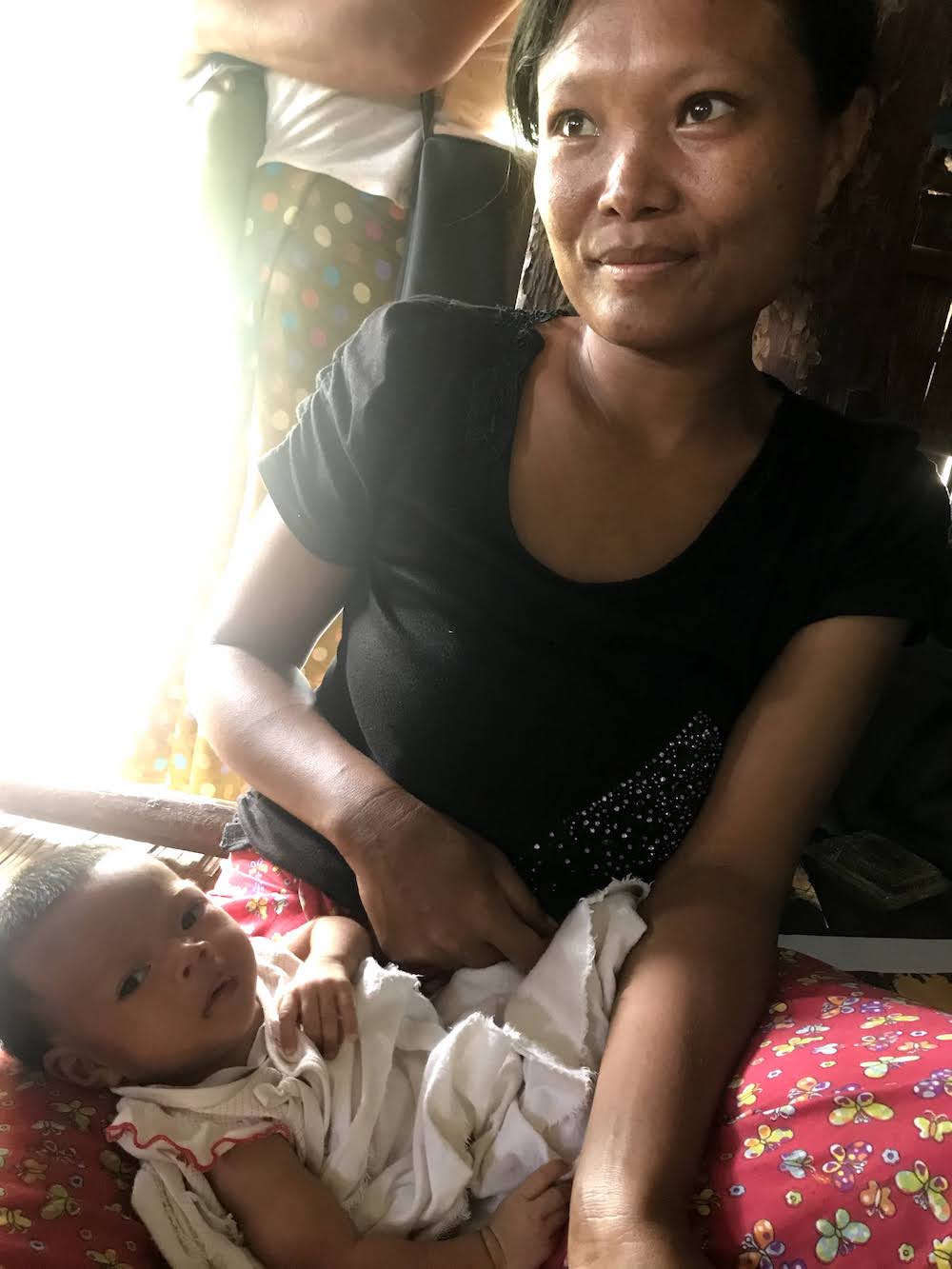
Carrien is co-founder of The Charis Project, Family Education Curriculum Developer, and mom of 6.
You can get her free mini-course on Making Your Family More Resilient here.
